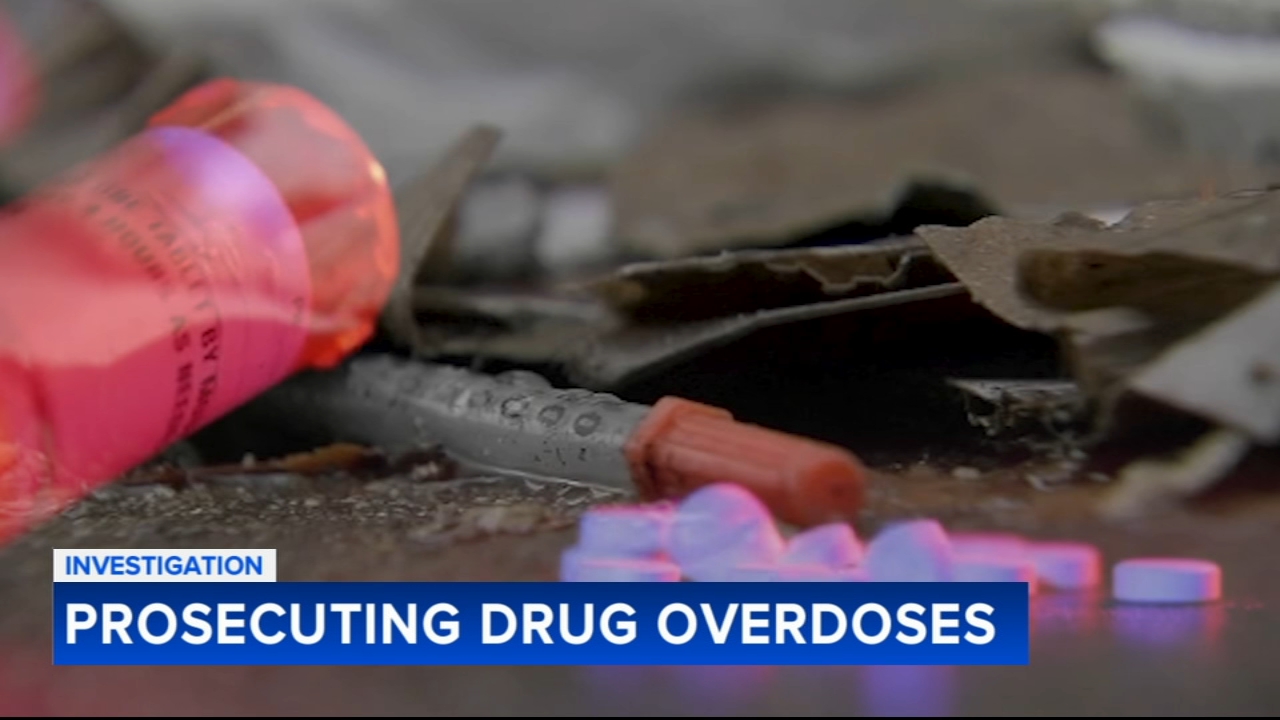Action News Investigation: What is fueling the gun violence in Philadelphia?
PHILADELPHIA (WPVI) -- Across the country, gun violence is on the rise during the pandemic. Solutions are evasive and many authorities say the cause is up for debate.
Philadelphia is on pace for 450 murders, the most in three decades.
Earlier this week, police announced some small victories in the war on gun violence, but the city still has more murders per capita than Chicago and New York.
The cause of what is fueling the violence is a political hot potato; perplexing for some and expected by others.
"I'm surprised and I'm upset by it. You know it is the kind of stuff that really should keep us up at night and it does," said District Attorney Larry Krasner.

Several seasoned homicide detectives, who didn't want to be identified, blame several factors: a city prison population cut drastically in half since 2015, bail reform and a police force reluctant to use stop and frisk in this highly charged political atmosphere.
Krasner has been labeled a poster child for being soft on crime by some police.
"Have you rethought any of your policies? And do you think they played any role in the explosion in homicides and gun violence?" asked Investigative reporter Chad Pradelli.
"We have rethought our bail policy," Krasner replied.
Krasner emphasized his office only recommends bail. He said his office is now pushing for higher bail on gun crimes.
READ MORE: Families touched by gun violence surge in Philadelphia want answers, change

Police Commissioner Danielle Outlaw refuses to point fingers, but said, "We need consequences that stick when folks know that there will be consistency around penalties and consequences."
Walk the streets of Kensington and you see arguably this country's largest open-air drug market. The heroin trade is very lucrative.
An extensive review of our Action News data team reveals the highest rates of gun violence is in Kensington, which includes the 24th police district as well as the 22nd district, which patrols North Philadelphia.
Homicide detectives told us dealers are protecting their turf.
"Your critics say that you view drugs as a nonviolent crime, yet that is what is fueling much of the gun violence and much of the homicides in this city?" asked Pradelli.
"The data is not necessarily supporting that," Krasner replied.
"What's the data say?" Pradelli pressed.
"I mean, the truth is we're getting it," Krasner said.
Temple University criminologist Jason Gravel echoed what the district attorney said.
"It's an incredibly complex problem. There is not one cause. There is not one person responsible and there is not one agency that can fix it either," said Gravel.
Gravel said the uptick in gun violence is too often simplified. Education, poverty, family dynamics all play a role.
Mayor Jim Kenney also blamed some of the recent violence on the pandemic.
"You take all those things, you put them in a pot and then you light it with a COVID-19 match and it bubbles over into what we're dealing with," Kenney told Action News.
In 2013 and 2014, the city had just under 250 homicides each year, serious progress under former Commissioner Charles Ramsey.
Krasner says it's unclear what perpetuated that change.
He also pointed out the homicide unit's clearance rate, the rate at which it solves cases, is well below the national average, meaning more killers remain on the streets.
Krasner also said he'd like the police department to receive more funding for forensics and other technology to help.
Detectives told Action News witnesses simply won't talk anymore, and during the pandemic, many criminals are wearing masks making them hard to identify.
According to Outlaw, a lot of policing isn't new.
"What were we doing then that we're not doing now? And why did we stop doing it?" said Outlaw. "So a lot of the stuff that I'm talking about, quite frankly, was done here in the city, but we let our foot off the gas."









